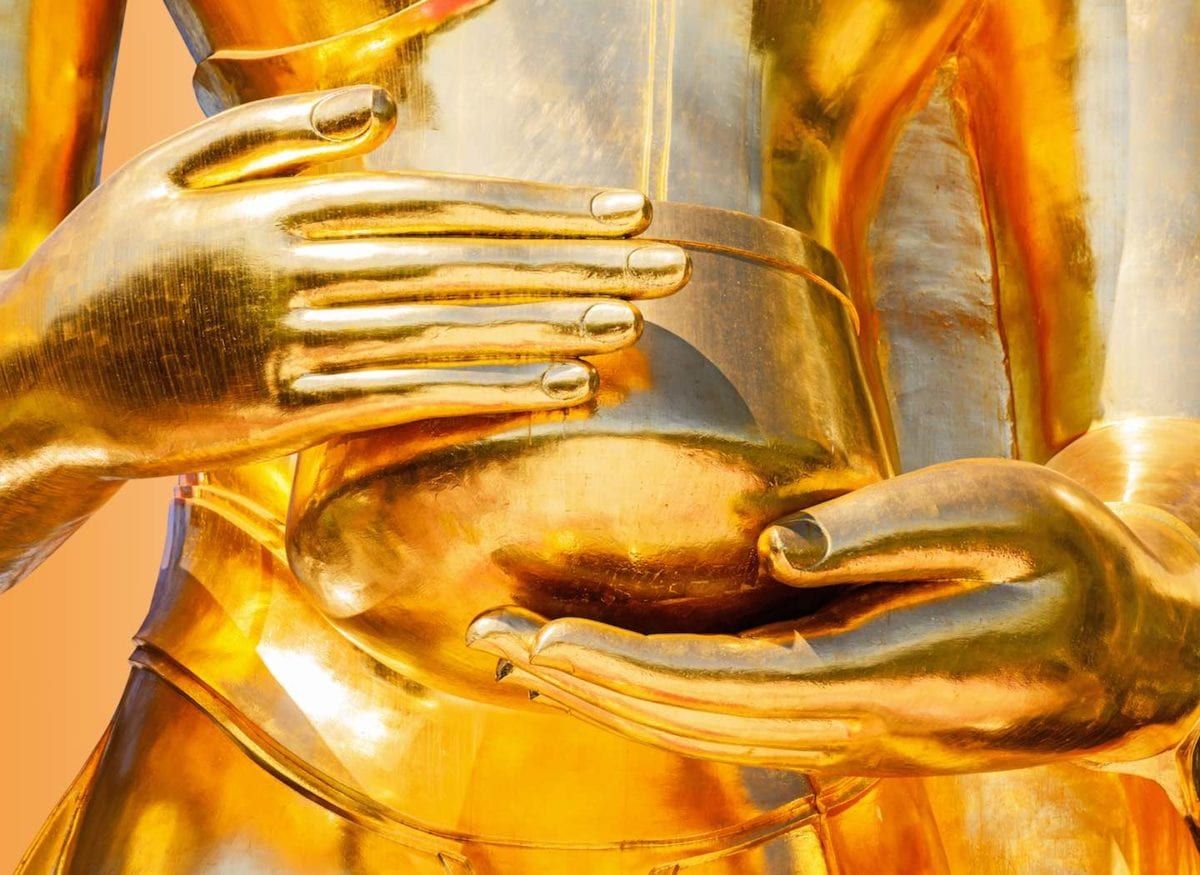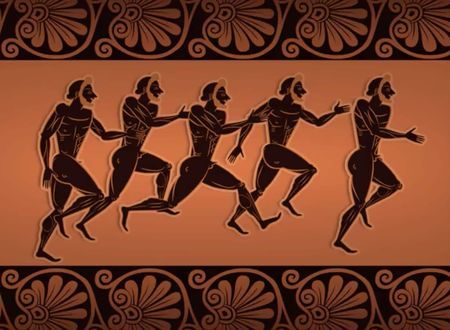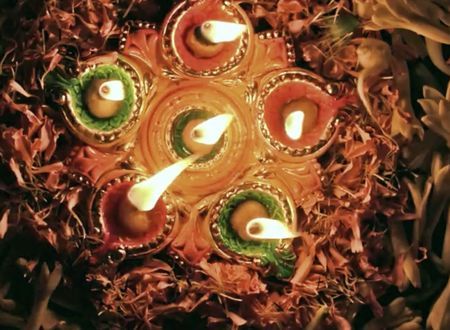“How do I gain enlightenment?” someone said to me the other day. “Can you not grant me some deep experience? I want a radical change in my life.”
I get this asked frequently by many enthusiastic seekers. They are in search of a panacea, some mystical reality that will solve all their problems (spiritual and emotional) forever. While many aspirants understand the importance of persistence and individual effort, most others are looking for a quick fix. Here’s a beautiful quote by Adya Shanti that mirrors my own thoughts in ways more than one:
Many seekers do not take full responsibility for their own liberation, but wait for one big, final spiritual experience which will catapult them fully into it. It is this search for the final liberating experience which gives rise to a rampant form of spiritual consumerism in which seekers go from one teacher to another, shopping for enlightenment as if shopping for sweets in a candy store.
This spiritual promiscuity is rapidly turning the search for enlightenment into a cult of experience seekers. And, while many people indeed have powerful experiences, in most cases these do not lead to the profound transformation of the individual, which is the expression of enlightenment.
One of the greatest misconceptions about enlightenment is that it will just happen. Not so. It has to be earned, it has to be lived. Sometimes I find it challenging to explain to seekers that true enlightenment is not a one-off special moment, but more a culmination of lifelong experiences and practices that result in the dawning of a great insight.
I don’t blame them for thinking that by the magical touch of some guru or maybe by being struck by lightning, they will arrive at a moment of enlightenment. Partly because we have plenty of spiritual books out there that give that impression. Even I may have inadvertently conveyed the same by sharing one of my most defining spiritual experiences in my memoir. For that matter, Buddha’s enlightenment under the Bodhi tree is often construed as an isolated event of extraordinary significance. It was anything but that.
In comprehending and highlighting such experiences, we tend to overlook the tremendous amount of effort that goes in realizing that state. For a moment, think of enlightenment as winning the Nobel Prize. We can’t have it just by visiting other Nobel Laureates and we certainly can’t be awarded it just because we want it.
After a lifetime of commitment to a cause or producing a phenomenal body of work, and assuming the circumstances are favorable, the committee might consider your nomination and grant you one. No doubt winning the Nobel Prize will bring about a change in your life and lifestyle to a degree, you will inspire more people and so on. But, beyond that, there’s not much. It’s not going to improve your relationships, it’s not going to fix your physical health, etc. Those challenges will remain.
Without preparation and readiness, any spiritual experience is hardly transformational. And if an experience doesn’t trigger some kind of lasting transformation in you, however subtle, it holds little meaning ultimately. When you continue to walk the path sincerely, diligently, many learnings, lessons, and experiences give you the wisdom to lead your life differently.
Differently so in a manner that it’s more conducive to retaining a state of bliss. Having said that, even if you are enlightened, it doesn’t mean that you won’t experience pain or that you will always find joy in everything that goes on in your life.
R.K. Laxman (1921 – 2015), one of India’s most famous cartoonists ever, writes a lovely passage in his travelogue The Distorted Mirror.
People are curious about my profession and try to clear their doubts by putting all sorts of questions. Recently a lady asked me, “Do you do the drawings for your cartoons yourself?” I answered, “Yes, I do.” Then she questioned, “And the captions to the cartoons, do you write them too?” “Of course,” I said. And, finally, she asked, “The ideas for the cartoons, don’t say you think them up too?”
…
There is one [question] that is rather rarely asked but which makes me go into deep introspection. This is: “When you look around, does everything appear funny to you?”
A cartoonist does not lead a charmed life of perpetual fun out of the reach of the cares and worries that bedevil his fellow men. The fluctuating prices of onions affect me in the same way as they delight or outrage a primary schoolteacher. Likewise, taxes depress my spirit. Bores at the mike, and traffic jams drive me crazy. Surely a doctor does not always look at life in terms of coughs, colds, allergies and bronchial inflammations.
A star of the silver screen, I am sure, has enough sense to know that beyond the range of the camera life does not continue to be full of idyllic scenes, sex, songs and ketchup-blood. Why, then, should a cartoonist see living caricatures and hear rib-tickling dialogue all around him? So I comfort myself with the self-assurance that my view of life is normally as banal as that of the next man in the queue for sugar or kerosene.
Enlightenment is something like that. It does not mean that you don’t feel the pain or remain eternally unaffected by everything that goes around you. All of that we must go through based on our karma, temperament, and attitude towards life. The only thing that changes is that you grow into a more spiritual being, you become increasingly resilient and kind. What life hurls at you doesn’t change, how you catch it or dodge it, does. When it builds to a tipping point, you become kind of independent, very independent. Less worried about what the world thinks of you, how it perceives you, and so on.
In other words, you draw your own cartoons, write your own captions and, much to the fascination or disbelief of others, come up with the ideas too.
As the famous Zen saying goes, “Before enlightenment: chop wood, fetch water. After enlightenment: chop wood, fetch water.”
Being a jivan-mukta, a liberated soul, or an enlightened person does not relieve one of his/her duties. Self-realization is not, as Eknath Easwaran put it, a compensation for one’s good deeds. It is but simply an outlook towards life that you gain from experiential understanding. If you really wish to get a grip on the notion of enlightenment then look upon it as a way of life, a commitment to virtues, as a promise to carry yourself a certain way and leading your life in a manner that befits you.
Liberation is not plonking a glorious flag on top of Mount Everest, it is but a mindful and diligent journey meandering through many treks and hikes, stopping and camping along the way, meeting and greeting fellow travelers, absorbing the breathtaking views, appreciating the challenges, rejoicing in where you are already. All this while you remain inward focused but goal-oriented.
When you realize this, a better sense of wellbeing and happiness shrouds you. You understand that there are no dark moments, that you are already enlightened. You just need to live a certain way to experience it. Then you laugh at the discovery that how unnecessarily seriously you’ve been taking yourself. As Thich Naht Hanh said:
I laugh when I think how I once sought paradise as a realm outside of the world of birth. It is right in the world of birth and death that the miraculous truth is revealed. But this is not the laughter of someone who suddenly acquires a great fortune; neither is it the laughter of one who has won a victory. It is, rather, the laughter of one who; after having painfully searched for something for a long time, finds it one morning in the pocket of his coat.
A religious man called a monk and invited him to bless his new home. The monk politely turned down the request saying he’s busy.
“But, what are you doing?” the man insisted.
“Nothing.”
Thinking that the monk was perhaps not in a mood to visit that day, he let it be and phoned again the next day. “Can you come today to bless my home?”
“Sorry,” said the monk, “I’m busy.”
“Doing what?”
“I’m doing nothing,” replied the monk.
“But that was what you were doing yesterday!” said the man.
“Right,” the monk replied. “I’m not finished yet!”
Course
Art of Meditation
Liberate yourself. Learn the Yogic Technique of Meditation. Just in 4 days (and master it over a lifetime)
Enlightenment too is an ongoing affair. No doubt, there can be a transformational moment that changes something in you forever. Living that change, however, is a matter of mindfulness and more. True enlightenment, that.
This is it. This life. It’s beautiful. Live it. Love it. For yourself, for others. Laugh it away. That’s all there is to know. Most of the rest, life can do without.
Peace.
Swami
A GOOD STORY
There were four members in a household. Everybody, Somebody, Anybody and Nobody. A bill was overdue. Everybody thought Somebody would do it. Anybody could have done it but Nobody did it.
Don't leave empty-handed, consider contributing.It's a good thing to do today.









Comments & Discussion
26 COMMENTS
Please login to read members' comments and participate in the discussion.